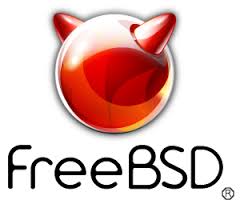FreeBSD on the PC – Not a Linux replacement!

Over the weekend I decided to give BSD a try. The last time I messed with any BSD OS was years ago, and it wasn’t good – that’s all I remember. But I thought after over 5 years I’d give it another try – thinking things probably got a lot better.
Now I know I could have gone with PC-BSD/TrueOS, but I wanted to use the “real thing” – FreeBSD being apparently the most popular variant of the BSD’s. I grabbed a Acer One Netbook on which I was running Linux (Debian) with Gnome3 and/or LXDE.
Create install media
I downloaded the DVD ISO of FreeBSD 11 and used Unetbootin to make a bootable USB stick – it took hours! Tried booting from the freshly-made bootable USB stick, but no luck. So I tried to make it again … with the same result.
Turns out you gotta download the ‘memstick’ image and use dd to make your USB bootable stick. Done!
Install FreeBSD
Boot up from USB stick and immediately I feel like I have just been sent 10 years or more back in time. I gave the ‘Live CD’ a go – username? Uhm … why? Search online (on my phone) and find out it’s ‘root’ with no password … login … got the command prompt. Okie Dokie.
Nevermind that – I get through the install without much hassle. Reboot. Am back again at the login command prompt.
Desktop Environment
There’s none (of course). I lookup on my phone how to install one, or two … Found the official documentation and followed the steps to install gnome3. All done … reboot. I find myself back at the command prompt.
The next hour is spent finding dozens of forum threads where people are asking where their newly installed Desktop Environment is. People reply asking if they did this, that and the other – yes, those are all in the documentation. We’ve done them. Still not working.
Finally I come across another official-looking piece of documentation where is says ‘Before installing a desktop environment, a graphical user interface (GUI) is needed.’, and then proceeds to tell you to install Xorg with pkg install xorg.
You’re kidding me right!? One would think that by installing Gnome3 that Xorg would be pulled in as well … sheesh …
So I install Xorg and reboot – black screen with a white blinky cursor at the top-left of the screen … waiting … waiting … wai – oh there it is. The login screen.
Beyond the Login
It’s slow. And I mean … VERY slow. This netbook is certainly no powerhouse – it’s basically a glorified calculator, but still, it was running Debian with Gnome3 before, and it was not this slow. even showing the system settings was painfully slow.
Right away I am looking for something I am soon to find out does not exist – a network manager of some sort. Yep, that’s right. It’s not there. Nothing. Not even just for the Ethernet connection.
I figure I got to install something so I look for a package manager of some sort. Nothing. Sorry, nope, ain’t got one. Back to the terminal and trying to install something but lacking permissions, so try with sudo, but it’s not installed and I cannot su (switch user) to root because my user is not in group ‘wheel’ —–>>>> WTF!?!?
So after rebooting a couple times, getting permissions sorted out, installing some more packages etc … I am back logged in as me and opening a terminal to see if I am online. Ping the network gateway, success. Ping google.com, success. Open the built-in browser, nothing. I am online, but the browser isn’t. Great.
Spent another hour looking up all the forum thread for this issue and the network manager thingy – some guy is ecstatic that there is something in GhostBSD for managing the network and wants to get it ported to FreeBSD … that was a year ago … Sad, just really sad.
I had enough
That’s it. I am done again for now. Goodbye BSD for another 10+ years.
You think that’s rash of me? If the OS cannot even deliver a network manager and/or package manager then it’s obviously not made for anyone other than people who want to spend their life tinkering to get the most basic functionality out of an OS in the 21st century – and I ain’t one of those people!
BSD for the PC is at least 10 years behind Linux, and it shows very little sign of ever catching up.

Sounds like a slam piece against FreeBSD.
Most users who are employing *BSD aren’t looking for the immediate gratification of an Ubuntu, but are looking for a stable user-made environment.